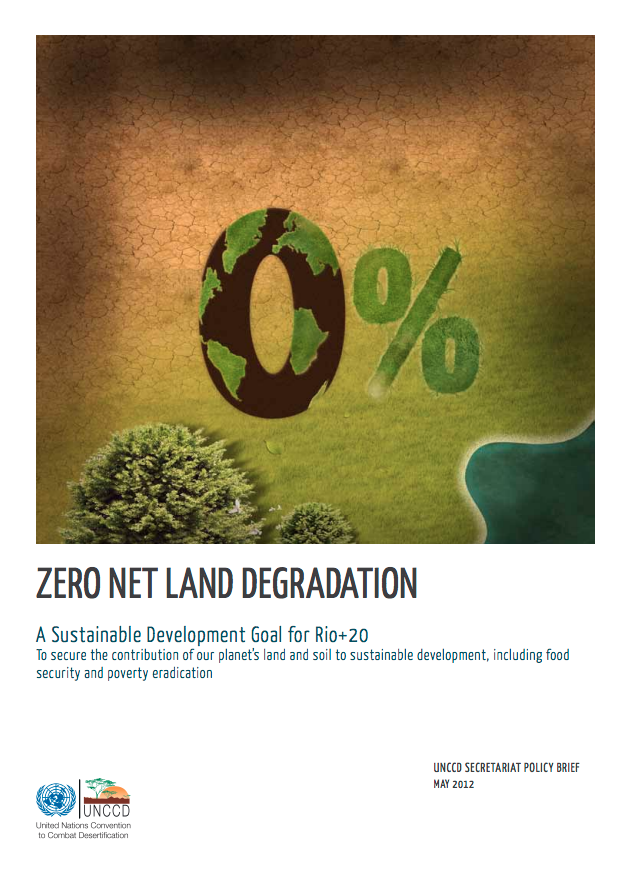Resource information
Land is our natural ally. But the natural conditions of land and soils are not eternal, and must be protected. Soil is the most significant geo-resource we have for ensuring water, energy and food security for present and future generations. Healthy soils are also vital for building resilience and adapting to climate change.
Competing claims on our finite land resource are sharply increasing. In its report released earlier this year, the High-level Panel on Global Sustainability states that by 2030 – and compared to present levels – the demand for food, energy and water will increase at least by 50 percent, 45 percent and 35 percent respectively. This means that the decision on all land uses should be made after the full consideration of options for synergies and trade-offs.
But, policies and sustainable development frameworks often overlook the caring capacity of soil and do not effectively address land degradation. As a result, this problem remains pervasive in all ecosystems, with a particular impact on drylands, home to many of the world’s poorest and most vulnerable people.
I am honored to present to you this paper, which urges the international community to adopt a goal on land use to complement those of climate change, biodiversity loss and poverty. In it we propose setting a sustainable development goal for a land-degradation neutral world. This is a goal of Zero Net Land Degradation.
Zero net land degradation means that we prevent the degradation of productive land and restore land that is already degraded. This is possible through sustainable land management policies and practices.
In the past, such a goal was unattainable. But today, scientific findings and technical know-how indicate that we can achieve a land degradation neutral world. Zero net land degradation is scientifically sound, technically feasible, and economically advantageous. It is not only possible, but prerequisite for sustainable development.
“Upon this handful of soil, our survival depends. Husband it, and it will grow our food, our fuel, and our shelter, and surround us with beauty. Abuse it, and the soil will collapse and die, taking humanity with it.” This was written 3,500 years ago in the Vedas of ancient India and it is still true today.
It has been twenty years since the Rio conference brought global decision-makers together to set a common agenda for sustainable development. But today, land degradation, desertification and drought are drying up the future we want.
Let’s agree on a solution. If we don’t do it today, it will be more costly tomorrow and impossible the day after tomorrow. We all know it, and future generations will know that we knew it. Let’s take a bold action by setting a goal of zero net land degradation at Rio+20.
Luc Gnacadja
Executive Secretary
United Nations Convention to Combat Desertification


